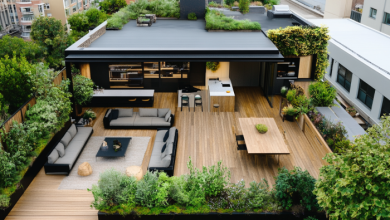
Selecting the ideal HVAC system is important to homeowners, particularly in cities such as Phoenix, where the temperature can be extremely high in the summer. Having a small system will not be sufficient to cool the home, while an oversized one will consume more energy and increase your utility bills. This is why knowing the ideal size for your house is necessary to get the right size HVAC system.
If you want to buy a new HVAC unit in Phoenix, there are several factors to consider. Properly sized HVAC equipment saves energy and provides a comfortable living space throughout the year. Further in the article, we will know more about the most important things one should consider when choosing the correct HVAC size for your home.
Why is Proper HVAC Sizing Important?
One of the key considerations when choosing an HVAC unit is the system size. If an HVAC unit is small, then it will be running all the time in an attempt to keep your home cooled or heated, which will cause unnecessary wear and tear as well as higher energy consumption. Contrarily, an oversized unit will be cycling on and off too much, decreasing its efficiency and creating uneven temperatures throughout your home.
Choosing the right size guarantees that the system functions properly and satisfies your heating and cooling requirements. HVAC sizing is based on different aspects such as your home’s square footage, insulation level, and climate. Knowing these factors will help you make the best decision while buying a new HVAC unit in Phoenix.
Estimate the Size of Square Footage
To find the right HVAC unit for your home, the size of your house plays a major role. These are mostly measured based on the square footage of the place where they are to be installed. If the house is bigger, then the system should be bigger to ensure sufficient airflow and control over the temperature.
If you want to find the size of an HVAC system, you need to measure the total square footage of your house. If your house is a multi-story building, then the higher floors might need more cooling than the main floor. Also, if your house is vaulted or has an open floor plan, you might need to adjust the size of the unit accordingly.
Evaluate the Insulation and Air Sealing
Your home’s insulation and air sealing have direct effects on the HVAC system’s ability to regulate the temperature effectively. For well-insulated homes, a smaller HVAC unit will do because the system does not have to work as hard to keep the house at the desired temperature.
Conversely, poorly insulated houses will require a bigger HVAC system to make up for heat loss or gain. If you are purchasing a new HVAC unit, you might as well get an energy audit to check the level of insulation in your house. If you discover that your house lacks adequate insulation or has air leaks, you should resolve those conditions first before you install a new system.
Energy Efficiency and Seasonal Energy Consumption
A high-efficiency HVAC system will pay for itself in the long run by conserving energy. Find systems with high Seasonal Energy Efficiency Ratios (SEER) for air conditioning and Heating Seasonal Performance Factors (HSPF) for heating. These tell you how efficiently the system will work per season.
Selecting an efficient system may cost more initially, but it can save money over time by lowering the cost of monthly utilities. It’s also an idea to consider a variable-speed motor system, which enables the system to vary its output according to what the home needs for heating or cooling.
Types of HVAC Systems
There are a variety of HVAC systems to choose from, all of which are best for certain purposes. Some of the most popular systems are:
- Central Air Conditioning and Heating: These are ideal for larger homes with ductwork throughout the house. These systems provide both heating and cooling from a central location.
- Ductless Mini-Split Systems: These types are suitable for homes without existing ductwork or for those looking to install only in specific rooms or zones. These units are flexible and energy-efficient.
- Heat Pumps: This type is ideal for mild climates for both heating and cooling. Heat pumps are suitable for areas like Phoenix, where temperatures don’t drop too low in winter.
Proper Installation and Maintenance
Even the best HVAC unit won’t perform at its peak if it isn’t installed correctly. Proper installation ensures that the system runs efficiently and lasts for years. When selecting an HVAC system, make sure to choose a licensed and experienced technician for installation. Also, routine maintenance is crucial for the longevity and efficiency of your HVAC system.
When the time comes to buy a new HVAC unit in Phoenix, it’s important that you consider several things to make sure that the system you get is the correct size for your house. Varying from knowing the square footage of your house to assessing the climate and energy efficiency, every factor is key to choosing the ideal HVAC system. With the proper unit, you can have maximum comfort and efficiency and still keep your bills manageable.




